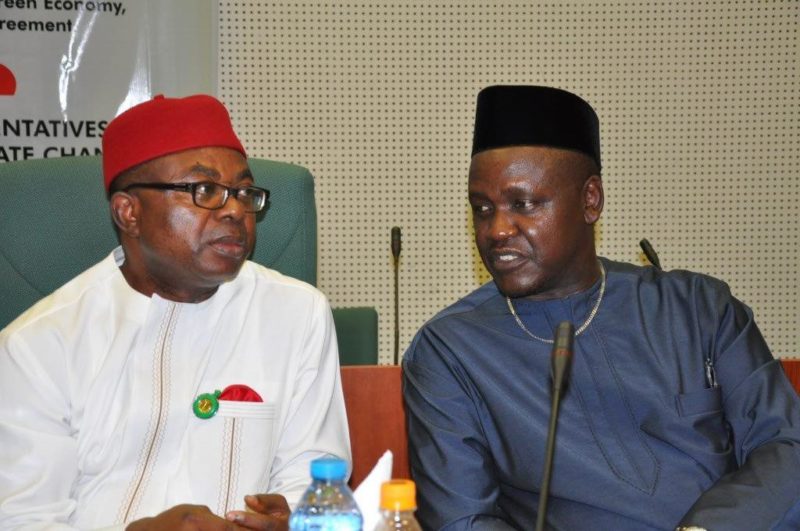If Nigeria is to harness the opportunities that the new global climate regime presents, the legislature must be equipped with the requisite knowledge to make laws that will facilitate successful implementation, Dr. Pa Lamin Beyai, Country Director, United Nations Development Programme (UNDP), has said.

Dr Beyai, who made the submission last Tuesday (27 July, 2016) during the “Roundtable on Pursuing a Legislative Agenda to enhance Nigeria’s Climate Resilience” at the National Assembly Complex in Abuja, noted that, aside legislating, an effective framework for over sighting is also important.
He said: “It would serve to ensure the efficient use of scarce resources that would lead to job creation, poverty reduction and prosperity that leaves no one behind, all of which are pillars of the green economy and Sustainable Development Goals (SDGs).
“Thus it is crucial that the National Assembly be better equipped to appreciate the impact of climate change on the economy, the imperative of reducing ecological scarcity and environmental risks and why adequate budgetary appropriation for climate responses and activities is required.
He pointed out that, with the adoption of the Paris Agreement, particularly Nigeria’s pledge under the Intended Nationally Determined Contribution (INDC) to reduce its emission by 20% by 2020 and 40% by 2030, there is huge obligation on government to strengthen existing governance arrangement to deliver on these pledges.
According to him, the implementation of the Paris Agreement and its INDCs component would be heavily dependent on legislative support in terms of appropriation and oversight.
“It is imperative that the National Assembly has a good understanding of the dynamics of international and national climate governance. Therefore, a new legislative approach that will ensure effective climate governance has become an imperative. The role of the National Assembly in providing laws for good governance will be incomplete without a good understanding of their expected role in ensuring a climate-resilient and climate compatible development to enhance economic growth. Hence, the need for the National Assembly to keep abreast with evolving issues particularly the concept of the green economy and green growth,” Beyai emphasised.
Sam Onuigbo, Chairperson, House of Representatives Committee on Climate Change, stated that the nation cannot afford to lag behind in the comity of nations.
His words: “Never again will we allow ourselves and our nation to be outpaced in the regional and international actions that are required to create sustainable and climate-friendly solutions that address the biggest development challenge threatening our civilisation. Rest assured this 8th National Assembly (NASS) is focused and determined to work together with the executive arm of government.
“I want to assure you that the leadership of the 8th NASS has attached high priority to addressing climate change challenges. To this end, we have taken unprecedented initial legislative steps to get ministries, departments and agencies (MDAs) on the same page of awareness, readiness, determination and commitment to Nigeria’s NDCs and the Paris Agreement. Partnerships are critical to combatting the climate challenge and I want to categorically say here that this 8th NASS is determined to do whatever it takes to help MDAs surmount our climate challenge.”
The legislator urged MDAs to factor in elements of the NDCs and the President’s commitment into their 2017 budget in order to accommodate some of the new challenges, especially as they affect the NDCs.
“The drying of the Lake Chad, Boko Haram and the incessant clashes between herdsmen and farmers in the middle belt, western and eastern parts of Nigeria are mere warning shots fired by climate change. If we do nothing to confront this menace from the roots, we might just be setting up ourselves, communities and countries for extinction!” he added.
By Michael Simire
